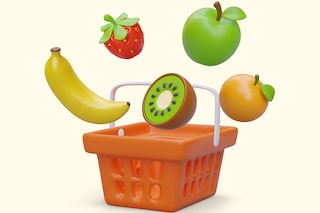How blockchain may boost freshness for grocery retailers
Fuqua professors found blockchain may increase profits and reduce waste in fresh food supply chains


As demand for fresh food grows among consumers, retailers face uncertainty: How much of the perishable goods will get to the store past their prime, remain unsold, and eventually get wasted?
Take strawberries: they have a short shelf life and require strict storage conditions. They also get wasted in large numbers if they can’t meet consumers’ freshness standards.
But for grocery stores selling perishable goods such as strawberries, a solution may come from blockchain, according to research from Professors Jing-Sheng “Jeannette" Song and Bora Keskin of Duke University’s Fuqua School of Business, and Fuqua Ph.D. candidate Chenghuai Li.
In a paper forthcoming in the journal Management Science, the researchers found that blockchain technology, used throughout the supply chain, would provide retailers with real-time data about the condition of the product—allowing them to optimize their orders and only accept goods that will meet consumers’ expectations.
“Blockchain is usually associated with money transfers," Song said. “But it can also be used to provide retailers with rich information, which determines the degree of freshness of the goods arriving to the stores. Then the retailers decide how much to order."
Food companies are already adopting similar systems and market analysts predict that 20% of global grocers will use blockchain by 2025.
“But the suppliers need to be convinced to participate in the system," Song said, and the paper provides a framework based on ‘smart contracts’ that make the technology “a win-win proposition for retailers and suppliers."
However, increased freshness transparency might lead retailers to order less and hurt suppliers’ profits, Song said.
But the researchers designed a smart contract that would benefit the whole supply chain while compensating the suppliers for the loss of profits.
“If freshness is below a certain threshold, the retailers will not order as much. So then I compensate you," Song said.
Such contracts would integrate retailers and suppliers, build trust in a system based on information transparency, and increase the value of the whole chain.
“The whole pie gets bigger and you can divide the benefits," she said.
If figures like these can justify the upfront investment in the technology by large retailers, smaller grocery stores may be enticed to join the system by subscription platforms similar to Amazon’s fulfillment services, Song said.
“The tech companies who have this technology can build a platform, help small stores set it up and help them work with the suppliers in the blockchain," she said. “The platform is an intermediary helping you with supplier development."
The technology would also function as a certification system that would benefit small producers, who could show the tamper-proof data about their farming practices and strengthen their brand, Song said.
Real-time information about freshness would also allow upstream suppliers and wholesalers to dispose earlier of products that are about to degrade, Song said.
“Imagine imported bananas," she said. “Suppose a wholesaler picks them up in Florida and needs to take them to North Carolina. They see they are already ripe, so they could distribute them to another retailer in Georgia."
“We always want this kind of dynamic information," Song said. “It’s a win-win situation. Blockchain offers that."
This story may not be republished without permission from Duke University"s Fuqua School of Business. Please contact media-relations@fuqua.duke.edu for additional information.
First Published: Jul 30, 2024, 11:18
Subscribe Now